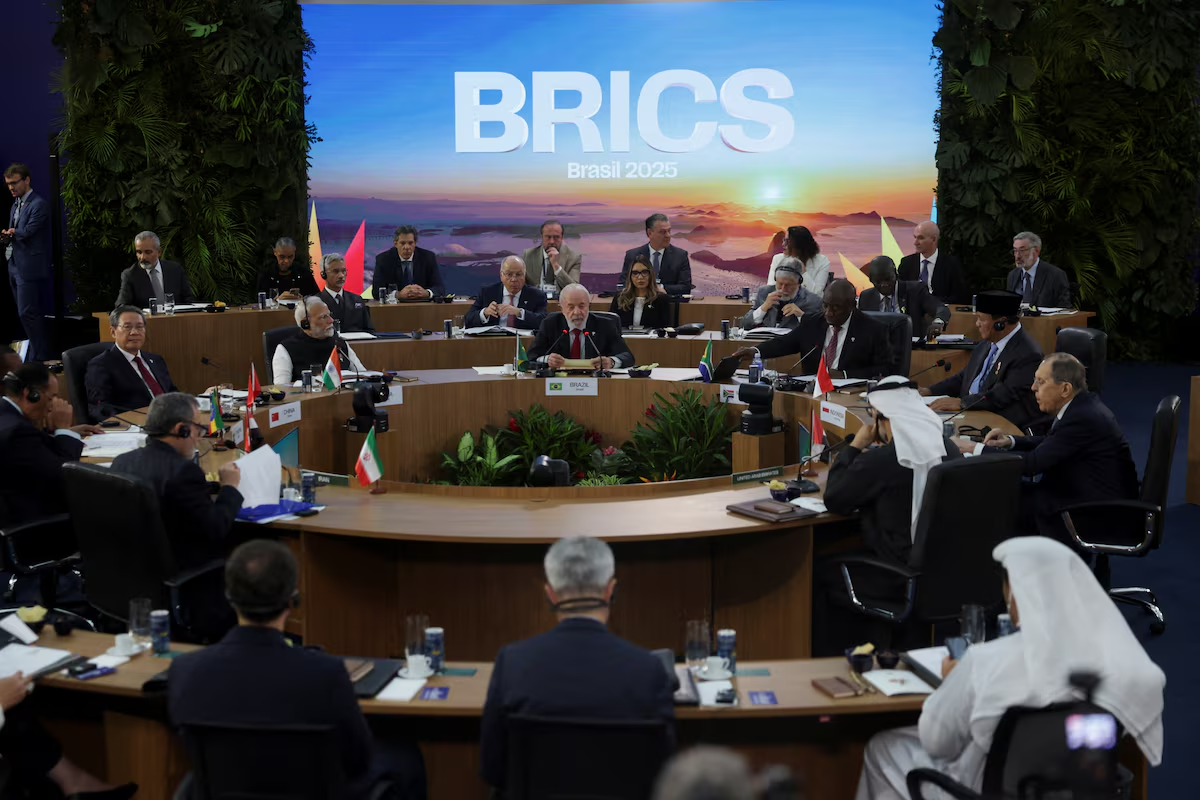On the final day of the BRICS Summit (7/7), leaders discussed addressing the shared challenge of climate change. They stressed the need for wealthy nations to increase funding for greenhouse gas reduction efforts in developing countries.
In the summit's joint statement, BRICS leaders reiterated that providing climate finance "is the responsibility of wealthy nations towards developing countries," a standard position for the group of emerging economies in global negotiations.
The statement also mentioned a forest protection fund proposed by Brazil. China and the UAE are expected to invest in this fund, according to Reuters.
 |
Leaders of BRICS member countries at the opening session of the summit in Rio de Janeiro, Brazil, 7/7. Photo: Reuters |
Leaders of BRICS member countries at the opening session of the summit in Rio de Janeiro, Brazil, 7/7. Photo: Reuters
BRICS, a group of emerging economies, represents over 40% of the global population and about a quarter of the world's GDP. Following former President Donald Trump's withdrawal of the US from the Paris Agreement, BRICS is expected to play a significant role in reshaping global climate governance.
To attract private investment, BRICS plans to utilize various sustainable finance instruments, including green bonds, loans, and blended finance mechanisms. Voluntary carbon market tools were also proposed.
BRICS ministers urged active discussions on a roadmap to secure $1,300 billion, the amount needed to help developing nations adapt to climate change, in preparation for the COP30 climate conference in Brazil later this year.
Carbon markets present an opportunity for developing nations as the European Union opens to purchasing carbon credits from outside the bloc. Last week, the European Commission (EC) proposed allowing member states to use carbon credits from developing countries to offset their emission quotas for the first time.
Carbon credits are tradable permits or certificates, granting the holder the right to emit one ton of CO2 or an equivalent amount of other greenhouse gases.
BRICS was established in 2009 with four original members: Brazil, Russia, India, and China. South Africa, Egypt, Iran, Ethiopia, the United Arab Emirates (UAE), and Indonesia later joined. In June, Vietnam became the 10th Partner Country of BRICS, alongside Belarus, Bolivia, Kazakhstan, Cuba, Malaysia, Nigeria, Thailand, Uganda, and Uzbekistan.
Bao Bao (Reuters, BRICS)












